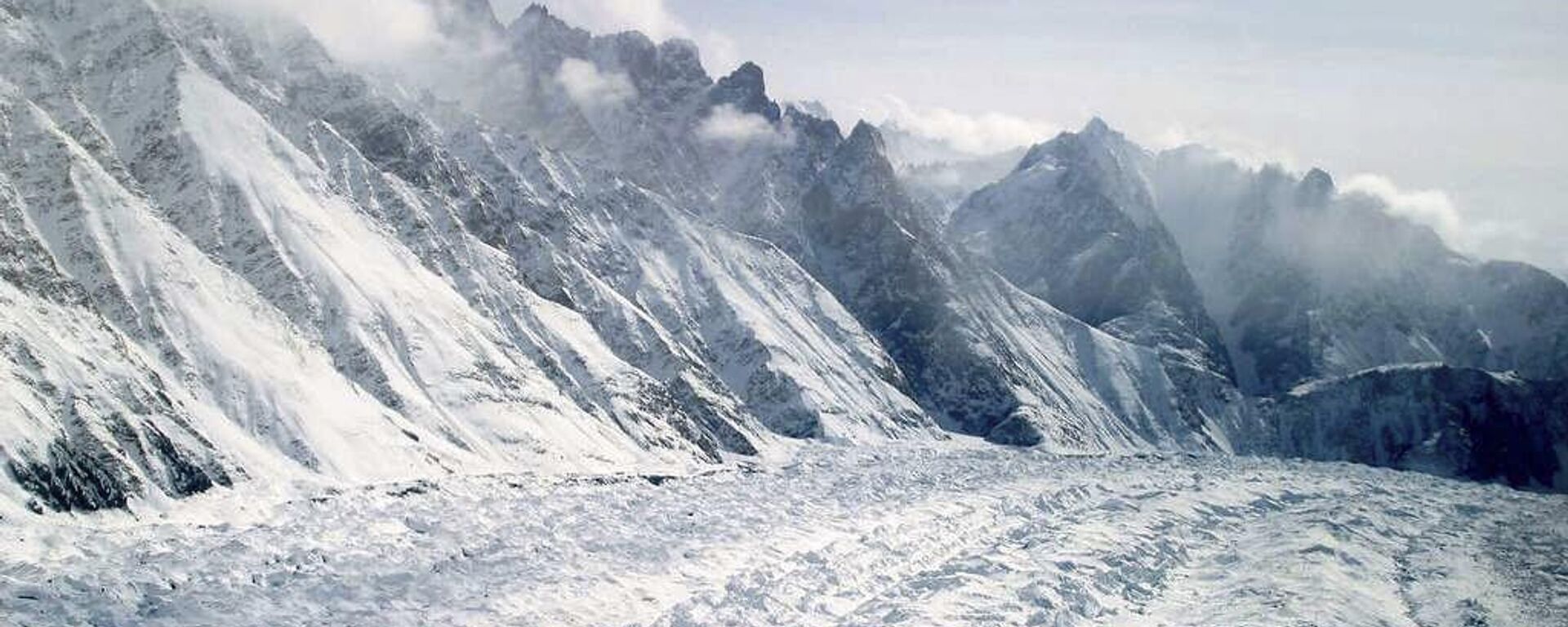https://sputniknews.in/20230705/more-severe-heatwaves-predicted-after-tuesdays-worlds-hottest-day-2838979.html
More Severe Heatwaves Predicted After Tuesday's World’s Hottest Day
More Severe Heatwaves Predicted After Tuesday's World’s Hottest Day
Sputnik India
Monday or 3rd July, is recorded as the world's record its hottest day ever globally since satellite monitoring began in 1979. The average temperature recorded was 17.01C, surpassing the August 2016 record of 16.92C.
2023-07-05T16:42+0530
2023-07-05T16:42+0530
2023-07-05T16:42+0530
world news
india
climate change
us
the united nations (un)
china
pacific ocean
canada
europe
https://cdn1.img.sputniknews.in/img/07e7/04/14/1620433_0:161:3071:1888_1920x0_80_0_0_bd7128412e07596cb5282b9ad45f8e0b.jpg
Scientists have predicted further record-breaking temperatures in the near future after the globe broke the hottest day record this week - twice. They largely attribute the heatwaves to the arrival of the weather phenomenon El Nino.Meanwhile, Monday's (July 3) average temperature was 17.01°C (62.62°F), surpassing the August 2016 record of 16.92°C (62.46°F). It was about 0.8°C hotter than average for the time of year during the late 20th Century. Dr. Robert Rohde, a lead scientist at US non-profit climate research organization Berkeley Earth, has predicted that the record might be broken again in the coming weeks.Current Climate Situation in WorldParts of the southern US, including Texas, are witnessing high temperatures due to the heat dome, which occurs when a high-pressure system is "stuck" in a certain location and holds the heat in.Meanwhile, Canada continued to see forest burning and witnessed the worst fire in its history, with more than 8.4 million hectares burnt. The smoke of the fires affected the air quality of large parts of the country and the US too.China is witnessing a record-breaking heatwave with temperatures reaching 35°C, simultaneously also flooding hitting parts of the country. On Sunday, China announced that the first half of 2023 had seen a new record of days with temperatures over 35°C, the highest since 1961 when records began.Similarly, many regions in North Africa are recording temperatures up to 50°C.The Antarctic region is also experiencing high temperatures, with many stations registering positive temperatures despite the winter season. The Vernadsky station broke its July temperature record with 8.7ºC.Last week, ocean temperatures around the British Isles and the Nordic countries continued to be high, threatening marine life.El Nino Has Officially Arrived: UNOn Tuesday, the United Nations World Meteorological Organization said that the onset of the major climate phenomenon, El Nino, has begun. The UN weather agency warned about the increase in global temperatures and extreme weather conditions.El Nino events occur when sea temperatures in the tropical eastern Pacific rise 0.5ºC above the long-term average. These events usually last nine to 12 months, having significant consequences on weather, wildfires, ecosystems, and economies across the world.The climate pattern usually occurs between two to seven years.What Do Experts SayFriederike Otto, a lecturer in climate science at the Grantham Institute for Climate Change and the Environment, described the event as a "death sentence for people and ecosystems. With El Niño developing, the world will likely break this record again in the coming months. We need to stop burning fossil fuels.""Loss and damage from human-induced climate change has arrived worldwide with the hottest day ever. Expect many hottest days in the future," as per Saleemul Huq, director of the International Centre for Climate Change and Development (ICCCAD) of the Independent University, Bangladesh.
https://sputniknews.in/20230621/himalayan-glaciers-are-melting-faster-than-ever-before-scientists-warn-2590863.html
india
us
china
pacific ocean
canada
europe
Sputnik India
feedback.hindi@sputniknews.com
+74956456601
MIA „Rossiya Segodnya“
2023
Deexa Khanduri
https://cdn1.img.sputniknews.in/img/07e6/0c/13/138923_52:0:533:481_100x100_80_0_0_cadf23d341691fc65ff2b22fd1afe584.jpg
Deexa Khanduri
https://cdn1.img.sputniknews.in/img/07e6/0c/13/138923_52:0:533:481_100x100_80_0_0_cadf23d341691fc65ff2b22fd1afe584.jpg
News
en_IN
Sputnik India
feedback.hindi@sputniknews.com
+74956456601
MIA „Rossiya Segodnya“
Sputnik India
feedback.hindi@sputniknews.com
+74956456601
MIA „Rossiya Segodnya“
Deexa Khanduri
https://cdn1.img.sputniknews.in/img/07e6/0c/13/138923_52:0:533:481_100x100_80_0_0_cadf23d341691fc65ff2b22fd1afe584.jpg
world hottest day, satellite monitoring began in 1979, average temperature, world's hottest day record, el nino, hottest days, dr robert rohde, berkeley earth, global temperature, climate change, burning fossil fuels, el nino weather pattern, current climate situation, texas, heat dome, canada, south asian region china, north africa, vernadsky station, ocean temperatures, british isles, marine life, el nino has officially arrived, united nations world meteorological organization, un weather agency, petteri taalas, weather, wildfires, ecosystems, economies, friederike otto, saleemul huq, international centre for climate change and development, icccad,
world hottest day, satellite monitoring began in 1979, average temperature, world's hottest day record, el nino, hottest days, dr robert rohde, berkeley earth, global temperature, climate change, burning fossil fuels, el nino weather pattern, current climate situation, texas, heat dome, canada, south asian region china, north africa, vernadsky station, ocean temperatures, british isles, marine life, el nino has officially arrived, united nations world meteorological organization, un weather agency, petteri taalas, weather, wildfires, ecosystems, economies, friederike otto, saleemul huq, international centre for climate change and development, icccad,
More Severe Heatwaves Predicted After Tuesday's World’s Hottest Day
Deexa Khanduri
Sputnik correspondent
Monday and Tuesday this week were recorded as the hottest days ever globally since satellite monitoring began in 1979.
Scientists have predicted further record-breaking temperatures in the near future after the globe broke the hottest day record this week - twice. They largely attribute the heatwaves to the arrival of the weather phenomenon El Nino.
Tuesday (July 4) was the world's hottest day ever recorded with a global temperature of 17.18°C (62.9°F), said one climate change institute.
Meanwhile, Monday's (July 3) average temperature was 17.01
°C (62.62
°F), surpassing the August 2016 record of 16.92
°C (62.46
°F). It was about 0.8°C
hotter than average for the time of year during the late 20th Century.
Dr. Robert Rohde, a lead scientist at US non-profit climate research organization Berkeley Earth, has predicted that the record might be broken again in the coming weeks.
"The record global temperature resulted from climate change, caused by burning fossil fuels and other human activities, combined with the emerging El Nino weather pattern," Rohde said.
Current Climate Situation in World
Parts of the southern US, including Texas, are witnessing high temperatures due to the heat dome, which occurs when a high-pressure system is "stuck" in a certain location and holds the heat in.
Meanwhile, Canada
continued to see forest burning and witnessed the
worst fire in its history, with more than 8.4 million hectares burnt. The smoke of the fires affected the air quality of large parts of the country and the US too.
China is witnessing a record-breaking heatwave with temperatures reaching 35°C, simultaneously also flooding hitting parts of the country.
On Sunday, China announced that the first half of 2023 had seen a new record of days with temperatures over 35°C, the highest since 1961 when records began.
Similarly, many regions in North Africa are recording temperatures up to 50°C.
The Antarctic region is also experiencing high temperatures, with many stations registering positive temperatures despite the winter season. The Vernadsky station broke its July temperature record with 8.7ºC.
Last week, ocean temperatures around the British Isles and the Nordic countries continued to be high, threatening marine life.
El Nino Has Officially Arrived: UN
On Tuesday, the United Nations World Meteorological Organization said that the onset of the major climate phenomenon, El Nino, has begun. The UN weather agency warned about the increase in global temperatures and extreme weather conditions.
"The onset of El Niño will greatly increase the likelihood of breaking temperature records and triggering more extreme heat in many parts of the world and in the ocean," said Petteri Taalas, secretary general of the WMO.
El Nino events occur when sea temperatures in the tropical eastern Pacific rise 0.5ºC above the long-term average. These events usually last nine to 12 months, having significant consequences on weather, wildfires, ecosystems, and economies across the world.
The climate pattern usually occurs between two to seven years.
Friederike Otto, a lecturer in climate science at the Grantham Institute for Climate Change and the Environment, described the event as a "death sentence for people and ecosystems. With El Niño developing, the world will likely break this record again in the coming months. We need to stop burning fossil fuels."
"Loss and damage from human-induced climate change has arrived worldwide with the hottest day ever. Expect many hottest days in the future," as per Saleemul Huq, director of the International Centre for Climate Change and Development (ICCCAD) of the Independent University, Bangladesh.



